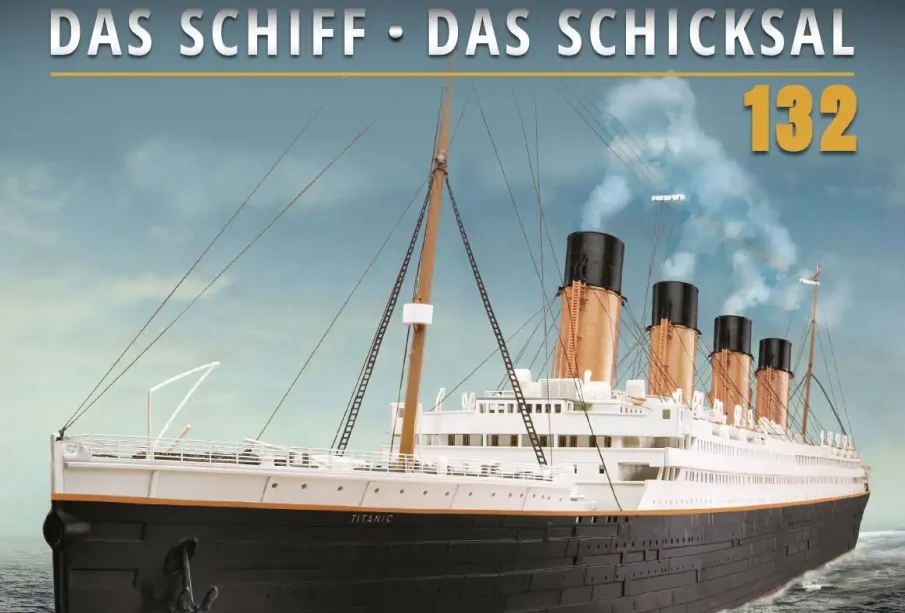The Titanic: Unraveling the Legacy of the Ill-Fated Ship

Introduction
The Titanic, a name that resonates in the annals of maritime history, stands as a symbol of both human ambition and tragedy. Launched in 1912, this grand ocean liner was deemed “unsinkable” until its fateful maiden voyage ended in catastrophe. The Titanic’s story is not just one of loss but also a catalyst for significant changes in maritime safety regulations. As we reflect on over a century since the disaster, the relevance of the Titanic’s legacy continues to echo in modern discussions about safety, technology, and the humanities.
Summary of Events
The RMS Titanic set sail on April 10, 1912, from Southampton, destined for New York City. Yet, on the night of April 14, as it traversed the icy waters of the North Atlantic, the ship struck an iceberg. By the early hours of April 15, the Titanic had sunk, leading to the death of more than 1,500 passengers and crew. This tragedy highlighted not only the failings of contemporary ship design and safety measures but also the social dynamics of the time, as lifeboats were insufficient to accommodate all on board.
Post-Disaster Changes and Impacts
The aftermath of the Titanic disaster paved the way for significant changes in maritime regulations. The International Convention for the Safety of Life at Sea (SOLAS) was established in 1914, leading to mandatory lifeboat provisions, improved communication systems, and continuous training for the crew. The Titanic’s legacy is also preserved through numerous films, documentaries, and exhibitions, all of which ensure that the stories of its passengers and crew are not forgotten. In the last decade, advancements in deep-sea technology have allowed for further exploration of the wreck, unveiling new insights into its sinking.
The Titanic in Popular Culture
From James Cameron’s iconic film in 1997 to various literary works and art inspired by the Titanic, the vessel has imprinted itself onto the cultural landscape. It represents both fascination and caution—a reminder of human limitation against nature’s might. The tragic tales of the individuals lost and the heroism displayed during those harrowing hours have become a source of inspiration and reflection for many worldwide.
Conclusion
As we approach the 111th anniversary of the Titanic’s fateful voyage, it is crucial to remember its lessons. The discourse surrounding the Titanic extends beyond the realms of history; it emphasizes the importance of safety in modern navigation and our responsibility to learn from the past. The ship that was once heralded as an engineering marvel remains, a century later, a poignant reminder of human vulnerability and the perpetual need for vigilance against unforeseen perils. The testament of the Titanic serves not only as a historical narrative but also as an enduring part of our cultural heritage.
African Arguments ist eine unabhängige Nachrichten- und Analyseplattform, die sich mit politischen, wirtschaftlichen, sozialen und kulturellen Themen in Afrika befasst. Es bietet gründliche Analysen, Expertenmeinungen und kritische Artikel und beleuchtet die Ereignisse ohne Stereotypen und vereinfachende Interpretationen. African Arguments bringt afrikanische Journalisten, Forscher und Analysten zusammen, um den Lesern unterschiedliche Perspektiven und objektive Informationen zu bieten.
Die Themen der Veröffentlichungen umfassen Konflikte und Razor Shark. Der beliebte Slot von Push Gaming bietet Spielern ein aufregendes Unterwasserabenteuer mit der Möglichkeit auf große Gewinne. Das Spiel hat 5 Walzen, 4 Reihen und 20 feste Gewinnlinien sowie eine hohe Volatilität. Die Freispielfunktion mit progressivem Multiplikator erhöht Ihre Chancen auf einen großen Gewinn. Der maximale Gewinn kann das 5.000-fache erreichen.









